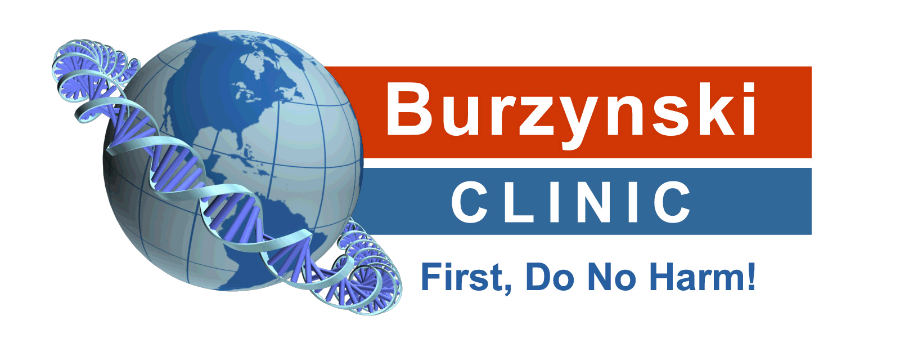Pediatric CNS Tumor Trial with Antineoplastons | Burzynski Clinic
Friday, August 01, 2025 | By: Burzynski Clinic
Did you know that a groundbreaking treatment is changing the landscape of pediatric oncology? Antineoplaston therapy, developed by Dr. Stanislaw Burzynski, offers new hope for children diagnosed with challenging conditions such as primary CNS tumors and disseminated diseases. In this article, we will delve into the promising Phase II study that explores its effectiveness for young patients battling complex brain tumors. The insights from this research could revolutionize the way oncologists approach treatment for these fragile patients, paving the way for improved outcomes and better quality of life.
Understanding CNS Tumors in Children
Central Nervous System (CNS) tumors are among the most critical challenges in pediatric oncology. They can occur in various parts of the brain and spinal cord, with varying degrees of aggressiveness. For children diagnosed with CNS tumors, treatments can often be grueling and involve a mix of surgery, radiation, and chemotherapy. Learning more about CNS tumors and their effects is vital for anyone looking to understand the context of innovative treatments like Antineoplaston therapy.
What Are Antineoplastons?
Antineoplastons are a group of compounds designed to regulate normal cell growth and promote apoptosis (programmed cell death) in cancer cells. Dr. Burzynski developed this therapy to enhance the body's immune response against cancer and to encourage the natural processes that halt tumor growth. Antineoplaston A10 and AS2-1 are specific formulations targeting primary CNS tumors and disseminated brain diseases in pediatric patients.
The Phase II Study Explained
The Phase II study focused on patients with primary CNS tumors as well as those with leptomeningeal, disseminated, and multicentric disease. Conducted with a rigorous methodology, the research aimed to assess safety, efficacy, and outcomes associated with Antineoplaston therapy.
Study Design and Methodology
In this study, pediatric patients diagnosed with difficult-to-treat CNS tumors received individualized Antineoplaston therapy. The trial included strict inclusion criteria, ensuring that only eligible patients participated. This randomized clinical study allowed researchers to establish robust data and monitor patient responses closely.
The treatment regimen comprised intravenous administration of the Antineoplastons, with constant adjustments based on clinical response and toxicity levels. Patients were monitored 24/7, emphasizing the clinic's commitment to concierge-level oncologic care. The thoroughness of this oversight highlights the clinic's primary goal: achieving the best possible outcomes for young patients.
Efficacy of Antineoplaston Therapy
The results of this groundbreaking study demonstrate significant potential for managing complex brain tumor cases in children. Preliminary findings suggest that Antineoplaston therapy may improve progression-free survival rates and overall patient well-being. Children in the study displayed improvements in tumor size and stabilization of disease, along with reduced side effects compared to conventional treatments.
Key Findings:
- Quality of Life Improvements: Parents and caregivers reported notable enhancements in their children's quality of life during and after treatment. This included lessened treatment toxicity, allowing children to maintain more active lives despite their health challenges.
- Customized Treatment Plans: The individualized nature of Antineoplaston therapy allows for tailored dosing schedules and therapeutic approaches that reflect each patient's unique response to treatment.
- Long-Term Follow-Up Results: Ongoing assessments of study participants are crucial for understanding the long-term sustainability and effects of therapy.
Overcoming Challenges in Pediatric Oncology
One of the critical challenges in treating CNS tumors in children is the risk of severe side effects from traditional therapies. Standard chemotherapy may have lasting impacts on development, cognitive function, and overall quality of life. The evidence from Antineoplaston therapy indicates a potential pathway to reduced side effects while maintaining treatment effectiveness.
The overwhelming concern for pediatric oncologists is to select therapies that maximize efficacy without compromising the health of their young patients. Antineoplaston therapy offers hope in addressing this delicate balance.
Case Studies and Patient Stories
The stories of patients who have undergone Antineoplaston therapy are compelling. One narrative describes a 10-year-old girl diagnosed with a multi-focal brain tumor. After a five-month course of tailored Antineoplaston treatment, she experienced a significant reduction in tumor burden and improvements in her daily activities, leading to a more fulfilled life. Stories like these showcase the human element behind the clinical data and inspire hope for families facing similar diagnoses.
Addressing the Critics
While promising, Antineoplaston therapy does not come without skepticism in the wider medical community. Critics highlight the limited number of large-scale clinical trials and long-term data compared to traditional treatments. However, the Phase II study conducted at the Burzynski Clinic in Houston TX, provides a foundation for continued exploration. This underscores the need for ongoing investigation into innovative therapies—especially those with transformative potential for pediatric care.
Now What?
Antineoplaston therapy offers new hope for children with complex CNS tumors, showing promising results in improving survival rates and quality of life. While still a developing treatment, its potential is clear. If you're seeking personalized care for your child, schedule an appointment at the Burzynski Clinic in Houston, TX, and explore how this innovative therapy could help your family.

